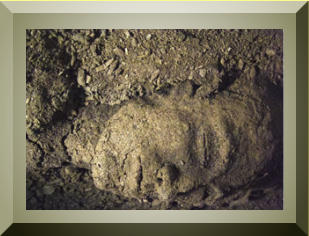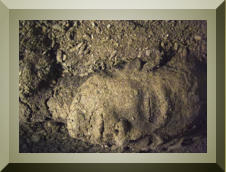The Uniqueness of Humanity
The
uniqueness
of
humanity
is
reflected
in
the
Biblical
affirmation
that
humans
are
made
in
the
image
of
God
(Gen.
1:26,27).
This
uniqueness,
this
sharp
distinction
between
humans
and
animals,
is
impressively
expressed
in
a
variety
of
ways.
One
of
them
is
captured
in
this
very
text,
which
says
that
God
subjected
animals
to
humans.
Animals
do
not
dominate
one
another
generally.
This
is
clearly
seen
in
the
fact
that,
though
individual
animals
might
kill
one
another
for
food,
no
species
has
ever
been
known
to
exterminate
another
species.
Rather,
humans
dominate
animals,
even
to
the
point of domesticating some and driving others to extinction.
Also,
humans
are
the
only
creatures
able
communicate
with
one
another
through
words,
whether
spoken
or
written.
While
it
is
not
unusual
for
members
of
an
animal
species
to
communicate
with
one
another
by
a
limited
range
of
sounds
they
make,
people
are
capable
of
making
a
wide
range
of
sounds
called
“words,”
which
have
very
complex
and
specific
meanings.
People
have
even
developed
ways
to
represent
these
sounds
through
systems
of
writing,
which
have
enabled
them
to
communicate
their
thoughts to one another over large distances and times.
Furthermore,
humans
are
the
only
species
which
exhibit
the
capacity
for
higher-order
thought.
For
instance,
no
animals
display
any
indication
of
an
inclination
to
contemplate
their
own
existence
and
its
meaning.
Yet,
people
ask
themselves
why
they
exist
and
what
their
purpose
in
living
is,
or
should
be.
They
pose
moral
questions
and
concern
themselves
with
right
and
wrong.
They
want
to
know
if
God
exists
and,
if
so,
how
to
relate
to
Him.
No
animal
shows
the
slightest
disposition
or
ability
to
entertain,
even
to
the
simplest degree, any of these thoughts.
Moreover,
humans
are
capable
of
contemplating
the
future,
including
the
end
of
their
existence,
and
whether
any
part
of
them
will
survive
death
and,
if
so,
what
the
nature
of
that
existence
will
be
and
whether
it
might
be
affected
by
how
they
live
their
lives.
Drew
Gilpin
Faust,
in
her
book,
This
Republic
of
Suffering
said,
“Of
all
living
things,
only
humans
consciously
anticipate
death;
the
consequent
need
to
choose
how
to
behave
in
its
face
—
to
worry
about
how
to
die
—distinguishes
us
from
other
animals.
The
need
to manage death is the particular lot of humanity” (pg. xiv).
Yet,
not
only
are
humans
capable
of
all
of
this,
but
they
are
capable
of
contemplating
the
implications
of
it
all.
In
other
words,
they
are
able,
and
inclined,
to
ask
themselves
what
all
of
this
means
for
them.
They
can
be
amazed
at
the
vast
gap
which
separates
them
from
animals
and
ask
themselves
why
it
exists.
They
can
ask,
“If
no
God
created
us,
then
why
are
we
humans
so
distinctly
different
from
animals?
Why
do
we
possess
minds
but
animals
do
not?
Why
is
there
no
animal
which
comes
even
remotely
close
to having such abilities and thoughts?”
Evolution
cannot
account
for
human
uniqueness
—
for
the
obvious
and
dramatic
differences
between
animals
and
humans.
If
humans
exist
as
a
result
of
a
long
series
of
subtle
and
graduated
steps
between
themselves
and
animals, why is there a gap? Where are the steps?
Yet,
the
Bible
has
the
answer:
God
made
humans
in
His
image,
to
have
a
mind
like
Him.
There
never
were
any
steps.
God
made
the
gap
in
the
beginning, and it has been there ever since.
“What
is
man,
that
Thou
dost
take
thought
of
him?
And
the
son
of
man,
that
Thou
dost
care
for
him?
Yet
Thou
hast
made
him
a
little
lower
than
God,
and
dost
crown
him
with
glory
and
majesty!
Thou
dost
make
him
to
rule
over
the
works
of
Thy
hands;
Thou
hast
put
all
things
under
his
feet,
all
sheep
and
oxen,
and
also
the
beasts
of
the
field,
the
birds
of
the
heavens,
and
the
fish
of
the
sea,
whatever
passes
through
the
paths
of
the
seas.
O LORD, our Lord, how majestic is Thy name in all the earth!” (Psalm 8:4-9)










“What
is
man,
that
Thou
dost
take
thought
of
him?
And
the
son
of
man,
that
Thou
dost
care
for
him?
Yet
Thou
hast
made
him
a
little
lower
than
God,
and
dost
crown
him
with
glory
and
majesty!
Thou
dost
make
him
to
rule
over
the
works
of
Thy
hands;
Thou
hast
put
all
things
under
his
feet,
all
sheep
and
oxen,
and
also
the
beasts
of
the
field,
the
birds
of
the
heavens,
and
the
fish
of
the
sea,
whatever
passes
through
the
paths
of
the
seas.
O
LORD,
our
Lord,
how
majestic
is Thy name in all the earth!” (Psalm 8:4-9)
The Uniqueness of Humanity
The
uniqueness
of
humanity
is
reflected
in
the
Biblical
affirmation
that
humans
are
made
in
the
image
of
God
(Gen.
1:26,27).
This
uniqueness,
this
sharp
distinction
between
humans
and
animals,
is
impressively
expressed
in
a
variety
of
ways.
One
of
them
is
captured
in
this
very
text,
which
says
that
God
subjected
animals
to
humans.
Animals
do
not
dominate
one
another
generally.
This
is
clearly
seen
in
the
fact
that,
though
individual
animals
might
kill
one
another
for
food,
no
species
has
ever
been
known
to
exterminate
another
species.
Rather,
humans
dominate
animals,
even
to
the
point
of
domesticating some and driving others to extinction.
Also,
humans
are
the
only
creatures
able
to
communicate
with
one
another
through
words,
whether
spoken
or
written.
While
it
is
not
unusual
for
members
of
an
animal
species
to
communicate
with
one
another
by
a
limited
range
of
sounds
they
make,
people
are
capable
of
making
a
wide
range
of
sounds
called
“words,”
which
have
very
complex
and
specific
meanings.
People
have
even
developed
ways
to
represent
these
sounds
through
systems
of
writing,
which
have
enabled
them
to
communicate
their
thoughts
to
one
another
over
large
distances
and times.
Furthermore,
humans
are
the
only
species
which
exhibit
the
capacity
for
higher-order
thought.
For
instance,
no
animals
display
any
indication
of
an
inclination
to
contemplate
their
own
existence
and
its
meaning.
Yet,
people
ask
themselves
why
they
exist
and
what
their
purpose
in
living
is,
or
should
be.
They
pose
moral
questions
and
concern
themselves
with
right
and
wrong.
They
want
to
know
if
God
exists
and,
if
so,
how
to
relate
to
Him.
No
animal
shows
the
slightest
disposition
or
ability
to
entertain,
even
to
the
simplest
degree,
any
of
these
thoughts.
Moreover,
humans
are
capable
of
contemplating
the
future,
including
the
end
of
their
existence,
and
whether
any
part
of
them
will
survive
death
and,
if
so,
what
the
nature
of
that
existence
will
be
and
whether
it
might
be
affected
by
how
they
live
their
lives.
Drew
Gilpin
Faust,
in
her
book,
This
Republic
of
Suffering,
said,
“Of
all
living
things,
only
humans
consciously
anticipate
death;
the
consequent
need
to
choose
how
to
behave
in
its
face
—
to
worry
about
how
to
die
—distinguishes
us
from
other
animals.
The
need
to
manage
death
is
the
particular lot of humanity” (pg. xiv).
Yet,
not
only
are
humans
capable
of
all
of
this,
but
they
are
capable
of
contemplating
the
implications
of
it
all.
In
other
words,
they
are
able,
and
inclined,
to
ask
themselves
what
all
of
this
means
for
them.
They
can
be
amazed
at
the
vast
gap
which
separates
them
from
animals
and
ask
themselves
why
it
exists.
They
can
ask,
“If
no
God
created
us,
then
why
are
we
humans
so
distinctly
different
from
animals?
Why
do
we
possess
minds
but
animals
do
not?
Why
is
there
no
animal
which
comes
even
remotely
close
to
having
such
abilities
and thoughts?”
Evolution
cannot
account
for
human
uniqueness
—
for
the
obvious
and
dramatic
differences
between
animals
and
humans.
If
humans
exist
as
a
result
of
a
long
series
of
subtle
and
graduated
steps
between
themselves
and
animals,
why is there a gap? Where are the steps?
Yet,
the
Bible
has
the
answer:
God
made
humans
in
His
image,
to
have
a
mind
like
Him.
There
never
were
any
steps.
God
made
the
gap
in
the beginning, and it has been there ever since.













